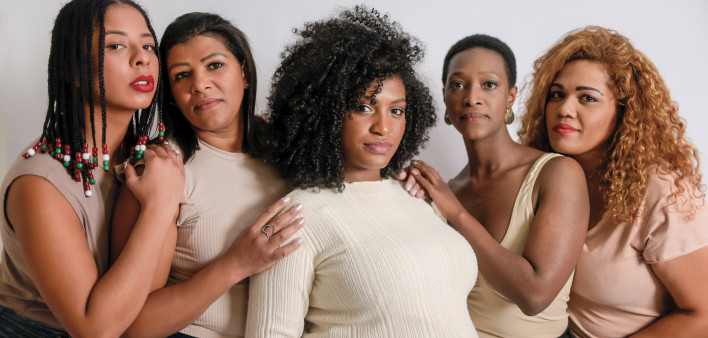A radically conservative, Trump-appointed judge in Texas ruled in April to halt the Federal Drug Administration’s (FDA) approval of the safe, effective and commonly used medication abortion drug mifepristone (“mife”), which is used along with misoprostol (“miso”) to terminate pregnancies. The ruling is not in effect and is being considered by the Supreme Court. But it could lead to a nationwide ban of this drug.
The ruling was anticipated by reproductive justice advocates, but it was still devastating. We are heartbroken and worried. As we said last year, the overturning of Roe v. Wade was just the beginning of many attacks on reproductive freedom and bodily autonomy.
Medication abortion accounted for more than half of all abortions in 2020. If a mife ban goes into effect, Black, Indigenous and people of color and low-income communities will once again be most harmed. Medication abortion is the most common, least invasive, most private, least expensive and most accessible way for people to terminate pregnancies. Losing legal access to mife means that communities that are already hyper-policed and surveilled will face greater risk of interactions with police based on personal health decisions.
More than 100 studies conducted in 26 countries over a 30-year period have shown that abortion pills are safe and effective. This ruling was not about science, just like the recent pre-exposure prophylaxis (PrEP) ruling out of Texas that undermined the Affordable Care Act preventive services requirement by singling out PrEP was not about science, just like the legislation sweeping state legislatures that targets trans and gender-nonconforming people and those who love them isn’t about science.
And once again, the silence from the HIV community—as in, zero acknowledgment on federal HIV policy listservs of the devastating mife court decision; as in, PWN-USA members and allies being asked by partners on a recent state HIV advocacy day to remove “abortion access” language from a list of policy priorities—speaks volumes. The continued failure to address reproductive rights and sexual freedom for all people living with HIV in the National HIV/AIDS Strategy 2022–2025 Federal Implementation Plan is just another example of the ways misogynoir is baked into the domestic HIV response.
We can’t fight for PrEP and for decriminalization of HIV and not also fight for abortion medications and for science—not ideology—to be centered in FDA approval processes. These struggles are connected.
Courts, judges and elected leaders don’t keep us safe. We keep us safe. Here are three actions you can take:
- Stay informed. Go to pwn-usa.org for updates.
- Demand change at the federal level. Tell the U.S. Congress that it must pass the Women’s Health Protection Act (WHPA). The WHPA is federal legislation that would protect abortion access in every U.S. state, no matter what the Supreme Court has said or will say about the right to abortion. All people—regardless of where they live or their gender, race, ethnicity, immigration status or ability to pay—should be able to control what does and does not happen to their bodies, including choosing the method of abortion that works best for them without barriers or delay.
- Mobilize! Sign up to receive updates from your local Planned Parenthood and the Women’s March so you can be ready to show up in your hometown when needed.
We will never stop building power and working to transform these racist, oppressive, patriarchal systems.







Comments
Comments